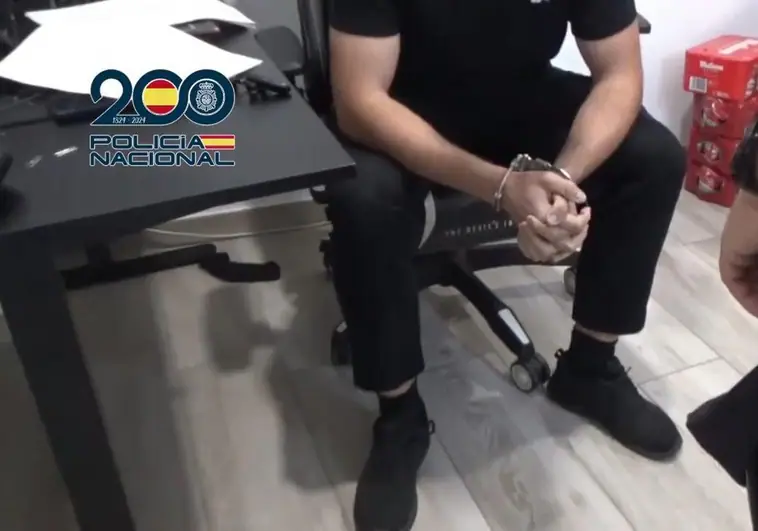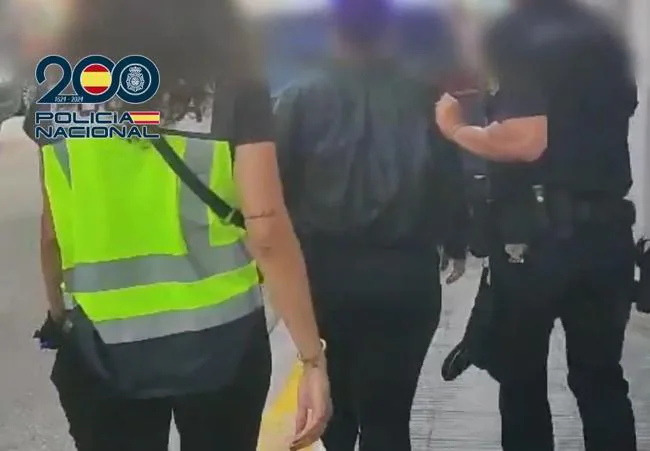
Police smash sex trafficking ring that operated on Costa del Sol
Officers were able to free 24 women who were forced to work as prostitutes in deplorable conditions in brothels across Spain, including Malaga
Europa Press
Malaga
Monday, 23 September 2024
National Police officers have freed 24 women who were victims of a sex trafficking ring and forced to work as prostitutes in brothels throughout Spain including Malaga.
The women, mostly of Colombian nationality, were forced to work in brothels 24 hours a day for six days a week, with only two free hours a day, according to investigators.
The gang spearheading the operation was led by a woman at the head of a family network. Police arrested 21 people in the provinces of Madrid (10), Valencia (5), Castellón (3), La Rioja (2) and Zaragoza (1), including the four main perpetrators of the scheme, who have been remanded in custody. Police carried out 11 raids at homes and shut down five brothels.

The first complaint to police
The investigation was launched following the statement of a woman who said she had been a victim of sex trafficking by the gang. This led police to discovering the operation was led by a woman who, together with her direct relatives, operated as a family clan.
The gang recruited victims in their country of origin through online advertisements and, occasionally, through other women already working as prostitutes, according to investigators. The women accepted the conditions imposed due to their precarious economic situation at origin and in the hope of improving their living situation, as they were often the only breadwinners in their families.
The victims would then travel to Spain, pretending to be travelling as tourists, where the organisation would then pass the expenses on to the victims in the form of a debt they would have to pay off by working as prostitutes.
Exploitation in deplorable conditions
The criminal network was active in at least six brothels located in the provinces of Castellón, Madrid, Malaga and Valencia.
When the women arrived in Spain, they were transferred to one of these locations, where they stayed for periods of 21 days, and when the traffickers considered the women were "burnt out" in one area, they moved them to other brothels. This rotation system was used to satisfy the constant demand for "new women" from clients and increase the profits of the network, according to police.
The victims were forced to accept all sexual assignments 24 hours a day with only one day off per week and two hours off each day with prior notice. They were only entitled to 50% of the profits from the sexual services they performed.
The members of the criminal network were themselves in charge of answering and arranging sexual services with the clients, either through phone calls or instant messaging, controlling conditions of the services.
Money laundering
The brothels also functioned as points of sale and distribution of drugs, mainly cocaine, and prescription drugs for the treatment of erectile dysfunction.
The criminal network collected the proceeds through a mobile phone payment platform. For this purpose, it had a network of collaborators who provided telephone lines and bank accounts where payments were made, which were subsequently transmitted to the heads of the criminal network in cash or through cryptocurrencies.
In order to launder the profits, they made use of trading companies through which they acquired various movable and immovable assets.
The police operation ended with 11 house searches in which they seized 51,730 euros in cash, a vehicle, 11 mobile phones, two laptops, an I-pad, 35 grams of cocaine, 446 grams of marijuana, 52 grams of hashish, 23 tablets for the treatment of erectile dysfunction, and an air pistol. Cash and cryptocurrencies were also blocked and a ban on the disposal of assets worth 508,367 euros was imposed.
National Police, on the international day against sexual exploitation and trafficking in persons, has reminded the public it operates a telephone helpline on 900 105 090 and email trata@policia.es to help victims and encourage anonymous and confidential reporting of this type of crime. The phone call will not be reflected on the telephone bill.